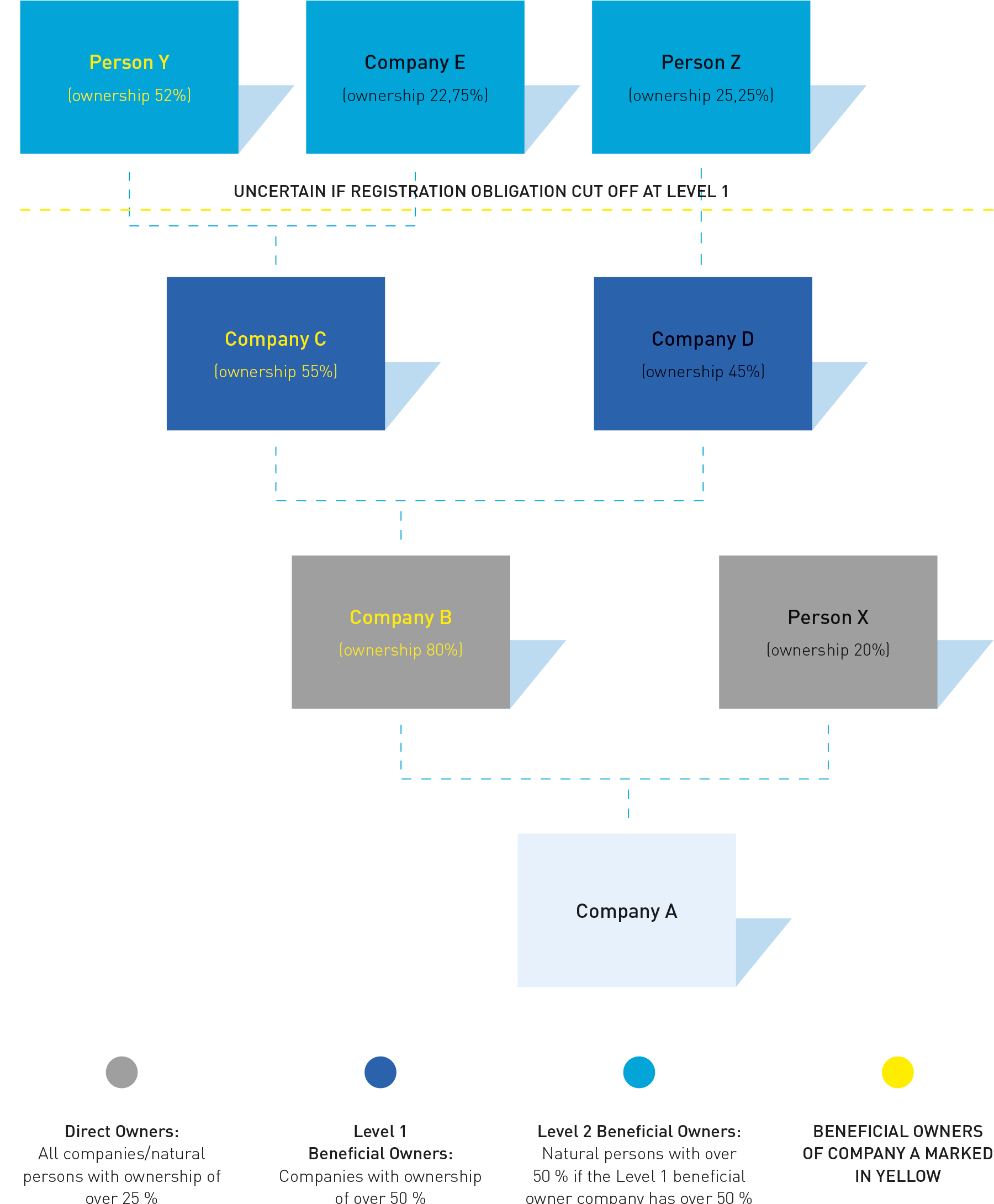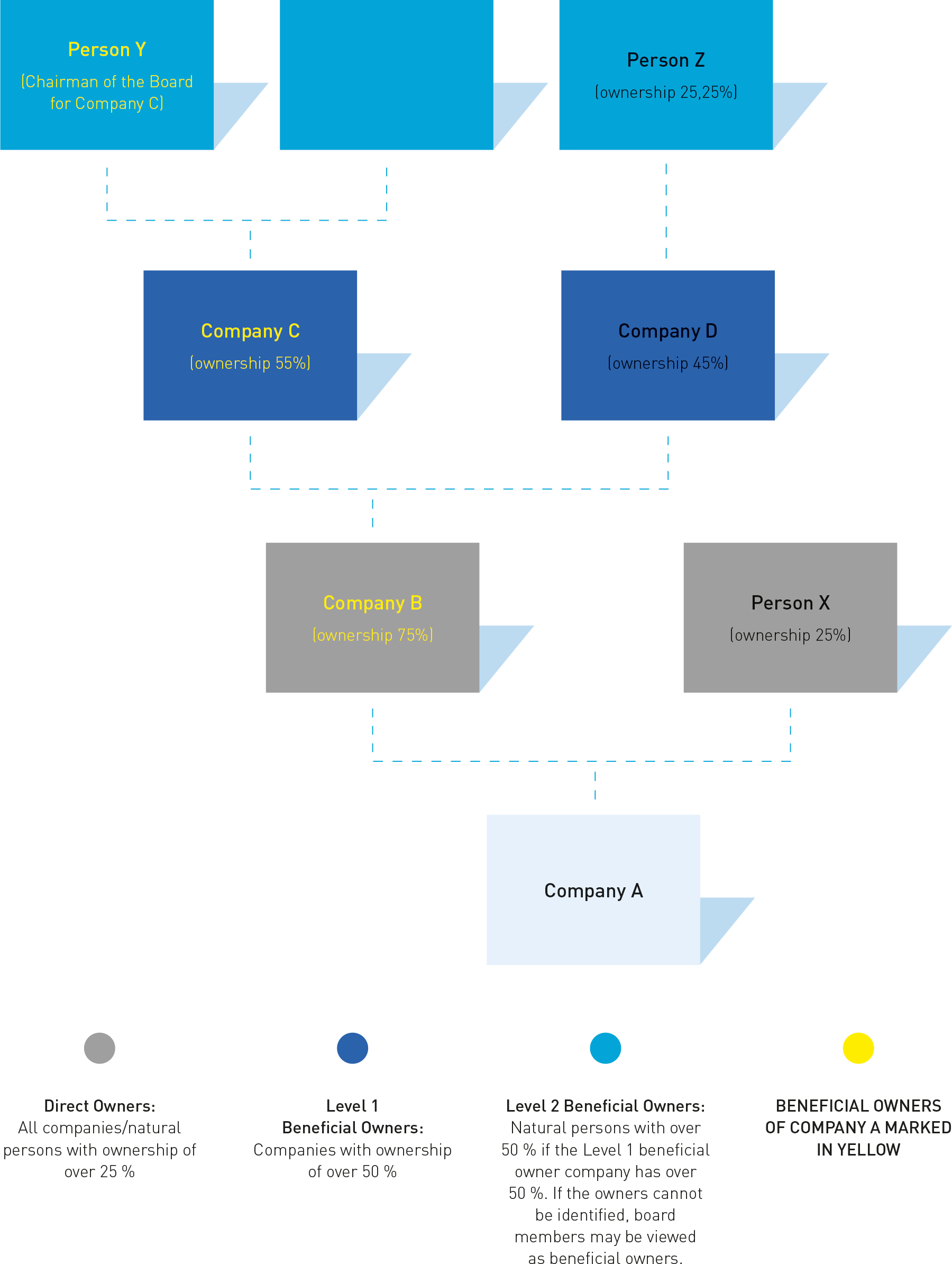
-
Editorial
Thinking Ahead
-
The D&I Journey
Trust Is Paramount
-
Substance Matters
In Search of the Beneficial Owner
-
Substance Matters
Whistleblowing Regime Proposed to Be Expanded
-
Substance Matters
Supreme Court: Illegal Strike Organized Independently by the Employees Could Lead to Cancellation of Bonus
-
We Asked
New Partner Kai Erlund
-
Featured D&I Alumna
Catching Up With D&I Alumna Kaarina Ståhlberg of Posti Group
EDITORIAL
Thinking Ahead
The CEO was clearly stressed when he hurried a few minutes late into the lunch restaurant. He had taken his morning run at six that morning, followed by a number of meetings, but now he actually had a moment to sit down with his friend.
"Lawyers are slow and they threaten the agility of a dynamic company" he complained.
He ate quickly while describing the intensity with which his management team works. He told me that his team's view was that they couldn't afford taking onboard a lawyer to slow the team down.
He talked fast and his stories were sort of scetchy, a little incomplete. He ran away to his busy afternoon program long before the dessert and left me to take care of the tab.
His intensity and fast talk had made me restless. I ordered a chocolate mousse and a double espresso to calm down. While sipping the espresso I thought of what Dalai Lama had said about talking and listening. "As long as you talk yourself you only hear what you already know."
Are we lawyers becoming obsolete in this new quick, exciting and constantly changing world?
Of course not. I believe that our role is more important than ever.
When everyone else runs ever faster, someone needs to slow down and reflect upon whether we're all running in the right direction. Someone must look around the bend to see whether there are threats to our business and how we can protect us against them. Someone needs to think ahead. That someone is often the trusted legal advisor to the CEO.
It doesn't mean that we lawyers shouldn't provide much better and more dynamic support to the business. On the contrary, we must be more agile and provide broader and more insightful advice in a form that is easier and quicker for the busy business people to adopt. We must think further and broader, communicate better and understand the business better. We must not be afraid of rendering clear and very specific advice.
I paid the tab and ran back to the office. A client meeting about a new project was about to begin and I couldn't keep them waiting. My team had been working hard to identify alternative structures and they were ready with a presentation with our concrete recommendations taking into account the relevant tax, company, employment, data protection and competition law aspects. Watching them present our views to the client and discussing both short- and long-term alternatives, I felt very proud of how our team thinks ahead.
An hour after the meeting I got an enthusiastic phone call. The client loved it.
Jan Ollila
Senior Partner, Head of M&A & Private Equity

The D&I Journey
Trust is Paramount
Once upon a time a trained psychologist with background in the marketing-driven pharmaceutical sector, took the helm of HR Manager at Dittmar & Indrenius. She was not at all prepared for the culture shock in store for her.
In Mirka Palm's eyes, law seemed like a funny form of theatre and she struggled to take the profession’s unspoken etiquette and the impeccable formality seriously, while everyone around her seemed to take pride in both. Somebody even told her that there was to be no laughing in Dittmar & Indrenius’ corridors. “That proved to be not true, thank goodness”, she says, with a contagious laugh.
“D&I culture today is an outcome of the good seeds we've been planting in a healthy soil.”
“Go ahead and take our culture to a new level, so we can develop into something much greater”, said Senior Partner and Chairman of the Board, Jan Ollila, when giving Palm her broad-brush brief a decade ago. “The freedom I was entrusted with was very important”, she reflects on a colourful sofa in a former meeting room converted into a laid back social space featuring a bar, table hockey and photos from office parties. “But culture was not outsourced to me. It couldn't have been - it doesn't work like that. Cultural change is not a "fix" delivered by HR experts. D&I culture today is an outcome of the good seeds we've been planting in a healthy soil. It has evolved as we, as a team, have reworked some fundamental pratices and put new processes in place. I was the project manager, that's all”, she says firmly.
This spring Dittmar & Indrenius participated in the Great Place to Work® Finland survey and landed in the 11th spot of all firms, being the only law firm recognized in the list of Best Companies to Work For® in Finland. The way Palm sees it, the outstanding result was just a very nice bonus. What she wanted to get out of the survey was new perspectives for their organisational development process and the opportunity to benchmark themselves against other employers who are also striving for excellence. “Our management is fully committed to make D&I one of the best employers in Finland. We want our people to feel good about coming to work, every single day.”
“Expertise is always for hire but what really matters is how you relate to other people.”
For Team Players Only
“Excellence is our tradition – it's in our DNA.” To deliver that promise, it's critical that the firm manages to satisfy and motivate the employees to serve the firm and its clients the best possible way. Everyone at D&I embarks on their own D&I journey, a concept launched by Palm. It's about opportunities for professional and personal development and recognising everyone's individual contribution to the culture. ”We are a star factory for our future partners, not a regular car wash with identical, high-spec robots emerging from a conveyor belt. We all have our own unique strengths so we want all our employees to enjoy their own unique D&I journey with us."
While the firm treasures personalities, unique strenghts and the varying backgrounds of their employees, there is one thing that is non-negotiable. "There are other great firms out there but what sets us apart is our team-centric culture of pulling together. The catch is, the same applies to the candidates too. Some people in their professional lives are largely driven by personal glory and that sort of attitude can be very difficult to shift. We can't afford not to be completely humane in our thinking and in all our interactions within and outside the firm. Expertise is always for hire but what really matters is how you relate to other people.”

In Colleagues We Trust
It is Palm’s priority to ensure that everyone integrates into the firm and its culture as well and as quickly as possible. Critical part of quick integration is to build strong relationships with other employees. Browsing through D&I's Instagram, Facebook and Twitter accounts, one finds a tight-knit, joyful community proud to be "different with a twist" (#snadistiouto), regularly celebrating successes through someone spontaneously inviting everyone together for good news, a smoothie or a glass of champagne (#roligatimmen).
Far from spontaneous, however, is their traditional office-outing every other year: a long weekend for the whole firm somewhere outside the borders of Finland. Last fall it was Lago di Como, Italy (#comopassione) and before that Chamonix, France. "These trips have been truly amazing, unifying experiences. Such investments are absolutely necessary. The more our team trusts each other, the more we stand to learn from one another and become even better. To me, that is excellency defined", Palm says.

Brand Equals Culture
Katja Hollmén, D&I's Director of Client Relations, in charge of marketing, sales and PR, was also handed a blank slate to work with when Senior Partner Jan Ollila hired her two years ago. ”Do what you need to do. We have complete faith in you. This is an intelligent organisation – challenge us for greatness!"
Hollmén, who joined D&I from the media-sector, admits that it was a culture shock of a kind. "There was this almost fierce ambitiousness for high quality and yet it was a very relaxed group of amazingly intelligent and highly-likeable people. But the thing I fell for was the respect and trust I felt in my heart immediately."
Like corporate culture, the client experience, too, is made up of encounters, interactions and memories. According to Hollmén, what matters most in client relations is how well the advisor is able to build trust at the front line. D&I's trust-centric culture was a great foundation for her to rethink the firm's marketing strategy and D&I's client journey.
“You'd better have all the ingredients ready at hand before you start preparing the meal of a lifetime for your client.”
Inside the firm, unique employee experience had already been created through fostering team-spirit and trust. "Without that soul, that internal belief, I don't think it would be possible to successfully build trust in the advisor-client relationship. There can't really be any inconsistency between internal and external brand, they need to be fully aligned. You'd better have all the ingredients ready at hand before you start preparing the meal of a lifetime for your client", she says determinedly.
All B2B professional services aim to create superior client experiences in order to build trust-based relationships. "Even in B2B, the origin of trust is in 1-2-1, human-to-human relationship, that is never based on solely technical mastery or a frictionless process detail, say, whether billing was on time or whether there was a feedback session - both important touchpoints on D&I's client journey. Like high quality, trust is a very holistic experience with several intertwined layers", Hollmén explains.
Clearly, trust has been established when looking at D&I's financial figures in 2015 (+30% increase in turnover), 4th position in Mergermarket report on Nordic M&A deals in 2015 (measured by deal value) and the recent "highly commended", 1st runner-up position in the Lawyer Magazine's Law Firm of the Year in the Nordics in 2016. "A recent client quote of ours said: 'Having now worked with them I can say they are quite excellent'. It reflects perfectly what I would like all our clients to feel after working with us: trust", Hollmén says modestly, yet proudly.
"My role? I'm the battery charger for new creative ideas", she laughs. "My primary task is to boost and empower this firm and our people to succeed. My team and I do our best to make everyone see the big picture and understand the holy union of marketing, sales activities and the assignments on their table." Hollmén works closely with Palm and they strive to utilise each other's knowledge and expertise as much as possible. "Simon Sinek has said that customers will never love a company unless the employees love it first. We are big fans of Sinek because he shares our views", Palm and Hollmén exclaim with a laugh, as they complete each other’s sentences.
SUBSTANCE MATTERS
In Search of the Beneficial Owner
Anti-Money Laundering Legislation
According to an estimate by the International Monetary Fund (IMF), money laundering accounts for 2 to 5 % of global GDB.
The Finnish government is working to implement Directive 2015/849 of the European Parliament and of the Council of 20 May 2015 on the prevention of the use of the financial system for the purposes of money laundering or terrorist financing. An initial framework for the legislation was prepared by a working group and published in October 2015 and a committee is continuing the work. Governmental proposal for a new Act on Money Laundering and Prevention of Terrorist Financing is due to the parliament in August 2016 with the aim that the legislation becomes effective as of January 1, 2017.
The background for the EU Directive is the 2012 Recommendation of the international Financial Action Task Force (FATH). In line with the Recommendation, the Directive introduces a risk-based approach and creates increased focus on beneficial owners.
The need to identify beneficial owners is addressed in the Recommendation:
"Identifying the beneficial owner, and taking reasonable measures to verify the identity of the beneficial owner, such that the financial institution is satisfied that it knows who the beneficial owner is. For legal persons and arrangements this should include financial institutions understanding the ownership and control structure of the customer."
Governmental support is called for in the Recommendation:
"Countries should consider measures to facilitate access to beneficial ownership and control information by financial institutions…"
Beneficial Owner Register
In line with the above, the new legislation in Finland will introduce the obligation to maintain a Register of Beneficial Owners. This obligation will apply to all types of companies and become effective immediately upon entry into force of the new legislation.
Similarly with the present obligation to maintain share and shareholder register, the duty to maintain the Register of Beneficial Owners lies with the board of directors. The board members have to ensure that the register is kept up-to-date.
The Register of Beneficial Owners will need to record the following information about the beneficial owners:
name,
date of birth,
nationality,
country of residence, and
the basis and percentage of ownership and/or control.
Not immediately, but subject to a period of transition, there will also be an obligation to notify the information to a public register to be held at the trade register.
Who Is Beneficial Owner
Beneficial Owner is the natural person in whose interest or for the benefit of whom the company operates.
The legislation defines Beneficial Owner as someone holding an ownership or control exceeding 25% (i.e. at least 25 % + 1share). If such owner is a corporate entity, the beneficial owner is a person that owns or controls over 50% of that entity (i.e. at least 50% + 1).
According to the published framework, the aim of the new legislation is to only require companies to search through the first layer of ownership. This would cut down the administrative burden on the companies in general but limit the reliability of the information contained in the register. Financial institutions have criticized this approach and there is no certainty on the final content of the registration obligation.
The charts demonstrate the determining of the beneficial owner in three different scenarios. Company A, at the bottom of the chart, is the company whose beneficial owners are identified. Direct owners are the first level above the company. For the purpose of identifying beneficial owner, companies or natural persons owning more than 25 % are relevant. The following layers Level 1 and Level 2 demonstrate how the search for beneficial owner can continue. For the purpose of identifying beneficial owner, companies or natural persons owning more than 50 % are relevant. If such cannot be identified, board member(s) may be viewed as beneficial owner. The final content of the legislation, when available, will tell how far the registration obligation will extend.



Raija-Leena Ojanen
Partner, Head of Corporate Advisory, Compliance & CSR

SUBSTANCE MATTERS
Whistleblowing Regime Proposed to Be Expanded
A draft Government bill relating to implementation of the Market Abuse Regulation ((EU) No 596/2014, the "MAR") proposes a new requirement for issuers of securities, insurance companies and certain insurance intermediaries to establish effective and reliable mechanisms for the purpose of reporting breaches (a "whistleblowing system") of financial markets legislation. MAR enters into force on 3 July 2016.
"Breaches of MAR and other financial markets legislation"
Pursuant to the MAR, EU member states must require companies carrying out regulated financial services to put in place appropriate internal procedures for the purpose of reporting potential or actual breaches of financial markets legislation. According to the draft Government bill, the requirement to have such procedures is proposed to be imposed on insurance companies and insurance intermediaries involved in trading with financial instruments, and notably generally also on all issuers which shares or debt instruments are listed. Thus, many of the Finnish listed companies may come under the obligation to set up a whistleblowing system. The reporting should take place through a specific, independent and autonomous channel.
The proposed new whistleblowing regimes resemble the requirements imposed on Finnish credit institutions, investment firms and UCITS fund management companies which are already today required to maintain equivalent procedures. Insurance companies and intermediaries would, however, pursuant to the MAR be required to implement procedures enabling the reporting of breaches of the MAR only, while the proposed scope of the whistleblowing system for issuers would extend to cover all financial markets legislation, such as the Securities Markets Act (746/2012).
As a rule, whistleblowing systems are proposed to be made available to employees of issuers, insurance companies and relevant insurance intermediaries. However, the relevant entity may at its discretion also invite other stakeholders, such as clients, to notify suspicious practices and procedures in the operations of the entity through the whistleblowing system.
Internal Procedures
"Framework created by data protection law and company-specific system rules"
Many companies, including many Finnish listed companies, have voluntarily already implemented a whistleblowing system for their employees. Also numerous Finnish subsidiaries of U.S. issuers have implemented a whistleblowing system as part of a group-wide implementation. Such systems generally stem from the U.S. Sarbanes-Oxley Act which requires publicly traded companies in the U.S. to establish procedures for employees to submit complaints.
When implementing a whistleblowing system it is advisable, and an entity which as a result of entry into force of the MAR introduces such system is indeed required, to prepare clear rules and instructions for the use of the system. Such rules and instructions typically include provisions relating to rights and obligations of the whistleblower and the person who is allegedly responsible for a breach, and contents, investigation and other handling of the notifications.
Typically, as part of normal functioning of a whistleblowing system, personal data of employees is received and retained. Such system creates a register of personal data subject to the Personal Data Act (523/1999). This means, among other things, that personal data must be processed with due care, such processing is strictly restricted to predetermined purposes and there must be appropriate procedures in place for such processing, e.g. as regards data security.
"Confidentiality of notification protected"
One of the most important requirements for a whistleblowing system is that the identity of the whistleblower and the employee subject to the notification, i.e. the alleged offender, must be kept confidential, subject to procedural laws. Access to the report is also typically limited to persons who require access to investigate the alleged breach and solve the matter. In practice, however, by way of application of the procedural laws in most severe incidents constituting a criminal offense, the identity of the whistleblower appears to become public in connection with the trial. A whistleblowing notification can also be made anonymously.
"Limited inspection rights for the data subject"
In contrast to the general principle adopted under the Personal Data Act, an employee is proposed not to be granted a right to access his or her personal data in a whistleblowing system. The Finnish Data Ombudsman (the "DPA") is proposed to have authority, upon the employee's request, to access the register and inspect information concerning the employee.
Outsourcing to Third-Parties or Intra-Group
The requirement to have an independent channel for the notifications does not appear to require or prevent outsourcing of the whistleblowing system to third parties or to another group company. Having one whistleblowing system for the entire group under which data concerning several group companies is collected may actually safeguard the independence of the notification processing more effectively than having separate systems for each entity.
Outsourcing the maintenance of the whistleblowing system to a third party is, like any other outsourcing of processing of personal data to a third party, subject to a notification obligation to the DPA.
Regulator's Whistleblowing System
Also the Finnish Financial Supervisory Authority is required to maintain an effective and reliable whistleblowing system which is generally open for reporting of potential or actual breaches of all financial markets legislation, including as of 3 July 2016 the MAR.
Conclusion
In particular, companies which do not currently have any whistleblowing system in place should carefully analyse the proposed requirements to avoid unnecessarily increasing the administrative burden caused by the whistleblowing system and, at the same time, ensure that the system is enough flexible and, in terms of confidentiality and integrity, robust.
More detailed information on the whistleblowing systems existing in the financial services sector, being in material respects reflected also in the draft Government bill, is available from D&I Quarterly Q2 2014 at http://www.dittmar.fi/insight.
Jukka Lång
Partner, Head of Data Protection, Marketing & Consumers
Kristian Karlsson
Senior Associate

SUBSTANCE MATTERS
Supreme Court: Illegal Strike Organized Independently by the Employees Could Lead to Cancellation of Bonus
According to a precedent judgement KKO 2016:12 issued by the Finnish Supreme Court on 3 March 2016, an employer may validly apply a bonus system condition according to which no bonus shall be paid to an employee who has participated in an illegal strike organized independently by a group of employees. Such condition may be applied only when the illegal strike has not been organized in cooperation with a labour union.
In the case, the company's bonus system included a condition stating the annual bonus would not be paid in the event an employee participates in an illegal strike. A group of employees had organized a strike on 30 May 2010 and on 1–3 September 2010. Another group of employees had organized a four hour strike on 4 June 2010. The company had cancelled these employees' bonuses for 2010 due to the above industrial actions.
According to the Supreme Court the company's decision was legal. The decision to cancel the bonuses was not considered discrimination on the basis of trade union activity as the strikes were not even considered trade union activity. The employees had made the decisions independently and without their union's cooperation. The cancellation was not considered an illegal indemnification. Instead, the cancellation was simply a result of the employees' failure to comply with one of the bonus payment preconditions.
If the strikes would have been organized in cooperation with the employees' union, the company couldn't have cancelled the bonuses legally. This interpretation is based on an earlier Supreme Court precedent judgement KKO 2010:93.
Even a Short Walkout of a Few Hours Could Cancel a Whole Year's Bonus
A company may validly require that in exchange for an annual bonus, the employees must refrain from organizing illegal strikes.The Supreme Court's ruling allows cancellation of the bonus regardless of the duration of the illegal strike or the damages caused to the employer. The damages were not even taken into account as the Supreme Court considered the cancellation simply a result of one bonus precondition not being fulfilled. The ruling therefore enables the use of bonus system conditions aiming to prevent illegal industrial action taken without union support.
Trade Union's Decision or Cooperation Protects an Employee from Personal Sanctions
As a main rule, the labour union bares the responsibility for its own industrial action related decisions on behalf of the employees it represents. As a result, it is still forbidden to apply a bonus cancellation provision when the employees have taken industrial action initiated by their trade union. The sanctions of even illegal striking and other industrial action initiated by a union must be targeted at the union as the decision maker, not its individual member employees who have simply acted in accordance with their union's directions.
The above rule is based on precedent judgment KKO 2010:93 submitted by the Finnish Supreme Court in 2010, where the Supreme Court considered it discriminatory to reduce the damages caused by an illegal strike from the same year's bonus accrual. The strike decision was made by the employees' union.
A company may validly require that in exchange for an annual bonus, the employees must refrain from organizing illegal strikes.
The high protection of trade union activity relates to actions where a union has been active in one way or the other, not to actions the employees have decided on their own. As a result, in the future the unions may be more likely to take the responsibility for illegal industrial action in the event the alternative is the cancellation of their member employees' bonuses.
Remember the Following
(i) Consider including a bonus entitlement precondition related to illegal industrial action but pay close attention to the wording of the provision. A broad interpretation of such provision may be considered discrimination even when it comes to taking illegal industrial action.
(ii) Do not cancel the employees' bonus if their union has made the decision to initiate the industrial action or if it has been organized in cooperation with the union. In such event the correct object of sanctions is the union and the most likely sanction a compensatory fine as regulated in the Collective Labour Agreements Act (436/1946).
Samuel Kääriäinen
Senior Associate

We Asked
New Partner Kai Erlund
Leading Technology Expert Kai Erlund joined Dittmar & Indrenius partnership in March 2016 to become the new Head of Technology & Outsourcing practice.
Q: Where Will You Be Taking Our Technology & Outsourcing Practice Within the Next Two Years?
What I envisage is that, in the next two years, the Technology & Outsourcing practice will raise its profile significantly. I want to see us advising a growing number of big name clients, including listed companies, on their business-critical software and information system projects as well as outsourcing activities. At the moment, some may consider us as a first rate challenger but, in the next two years, we want to be considered as a leading practice in this field by knowing clients.
I am confident that with my extensive experience on both sides of the table on large-scale IT projects representing both suppliers and customers in the private and public sectors, combined with D&I's uniquely integrated Data Protection, IT and IPR services, we will be delivering a clear advantage and beneficial advice to our clients.
"An excellent understanding of this area and a very solution-oriented way of working. He has the client's best interests in mind at all times."
- CHAMBERS EUROPE
Q: What's Keeping You Busy Right Now?
Our world is becoming increasingly digital and, across all areas of business, the importance of legal counsel in the area of practice I represent is rising rapidly. At the moment I am working on outsourcing arrangements and several projects where clients are replacing their legacy IT systems with new better performing systems and cloud solutions. I also anticipate that there will be growing demand for legal advise involving agile projects in addition to more traditional waterfall projects.
"Displays very good industry knowledge and flexibility"
- THE LEGAL 500
Q: What Is Good Customer Experience Made of?
We are in the business of trust and professionalism. I personally believe that trust is something that can be established very quickly but only if you are able to deliver expert input and clear solutions serving the clients' needs. Let me put it this way; if you compare the client to an ice hockey coach (a sport that I love), the coach needs to be able to trust his players enough and know that they will not only posses the skills needed to play smartly but that they also have the guts to throw themselves in front of a flying puck where needed. In a similar fashion an experienced attorney can be a game changer for the client in its demanding business challenges and negotiations.
"Strong experience and knowledge, especially in licensing-related cases. Offers invaluable help when negotiating with other companies."
- CHAMBERS EUROPE
Listen Kai's Spotify-list for an All-Nighter at the Office:
Kai Erlund is a leading and highly regarded expert within technology, media and telecommunications law. He advises listed companies, private enterprises and other corporate clients in the procurement of business critical ICT systems and services. He also supports ICT suppliers and customers in their outsourcing arrangements, project agreements and licensing contracts.
Kai was a member of the working group assembled by the Central Chamber of Commerce of Finland to draft the Finnish IT2010 and IT2015 standard contract terms and conditions.
Prior to joining Dittmar & Indrenius in 2016 Kai has had an extensive career working for leading Finnish law firms and as in-house counsel e.g. for Oracle in Finland and Symantec in the UK.
Kai Erlund
Partner, Head of Technology & Outsourcing

Featured D&I Alumna
Catching Up With D&I Alumna Kaarina Ståhlberg of Posti Group
Before joining Posti Group Ltd. as their General Counsel in 2016, Kaarina worked, among other things, as General Counsel for Fortum Corporation and for 13 years in various positions at Nokia Corporation. At the beginning of her career she worked at Dittmar & Indrenius for several years, a period that she remembers fondly.
1. What Are the Most Rewarding Things About Working at Posti Group?
After two years as an independent legal consultant, it has been incredibly rewarding to be part of a large workplace community again that’s made up of such a wide range of professionals from many different backgrounds. I have a long track record of working for a number of different types of corporations and it has been exhilarating to take on this new post and really see how I can apply my skills and use my experience to benefit others.
Overall, what Posti represents for me is a tremendous opportunity to learn more about the service business and the postal sector and about this unique organisation and, above all, about how to manage change, how to make it through to calmer waters without committing fatal errors while still continuing to create something new. The older you get, the more important it is to keep learning and exposing yourself to new things. Otherwise you might just end up treading water without realising it.
2. What Legal Issues Have You Got Coming Up On the Horizon Over the Next Few Months?
The entire sector is undergoing a radical transition both in Finland and other countries. Digitalization has led to constantly decreasing mail volumes and continues to do so also in the future. The companies in the postal sector have to adapt their activities in this market development, by dramatically increasing the effectiveness of the traditional business, on one hand, and by creating new profitable business opportunities, on the other hand.
In the regulatory side, this is reflected in amendments in the postal regulation, and the Postal Act is currently under reformation in Finland, too. Governments in various countries have taken different approaches in regulating the postal business under the new circumstances. In some countries, e.g. Belgium, the Government is directly supporting the traditional business. In some other countries the requirements of the traditional postal services have been reduced in order to allow an activity that does not need support from the state budget but still meets the requirements of the end-users to a reasonable extent. Competition is opened in many countries, and now it is further opening in Finland too.
In addition to the business specific regulation, it is obvious that, for example, all the time evolving antitrust regulation and new data privacy regulation impose challenges to the business and interesting opportunities for lawyers to solve problems.

3. In the Client Role, What Do You Value Most In the Customer Experience?
Law firms should place significantly more emphasis on understanding clients’ business needs. Carefully balanced and highly detailed legal analysis is sometimes needed but what we are really looking for is firm insight and clear answers. That’s not to say that the clients have room for complete self-satisfaction in this perspective as the old saying “the better the brief, the better the result” certainly holds true.
Another factor that impairs the user experience is the traditional practice of hourly billing that remains surprisingly prevalent in the industry. Although, again, it could be that the clients themselves are unable or unwilling to negotiate a different fee structure. The way I look at it is that the value of the work is rarely defined by the hours that are put in.
At the end of the day, user experience is highly personal. When you need to buy legal advice, the person you are going to contact is someone you appreciate as professional and like as person.
4. Outside of Contracts and E-mails, What Are You Reading at the Moment?
Right now, I’m in the middle of reading Americanah, the new novel by Chimamanda Ngozi Adichie, the award-winning author of Half of a Yellow Sun. It’s always been important to me to have a broad view of the world, especially now that I’m working for such a staunchly Finnish business.
With my six-year-old, we are working our way through the Jules Verne oeuvre. His books are so rich and really help to set the imagination free, for both mother and son. At the moment we are reading Around the World in 80 Days. Before that, we read Captain Nemo, which was utterly amazing. I still can’t believe it was written in the 19th century! Or that it was written by a lawyer.
1
In the largest transaction ever involving a Finnish company, D&I advised Alcatel-Lucent in its combination with Nokia with the deal value of 15,6 billion.
2
D&I was highly commended 1st runner-up in the category of Law Firm of the Year: The Nordics at The Lawyer European Awards 2016.
3
The firm continuously represents more than every third Dow Jones Industrial Average company in their operations in Finland.
4
D&I ranked fourth among law firms with Nordic presence in Mergermarket report on Nordic M&A deal value in 2015.


